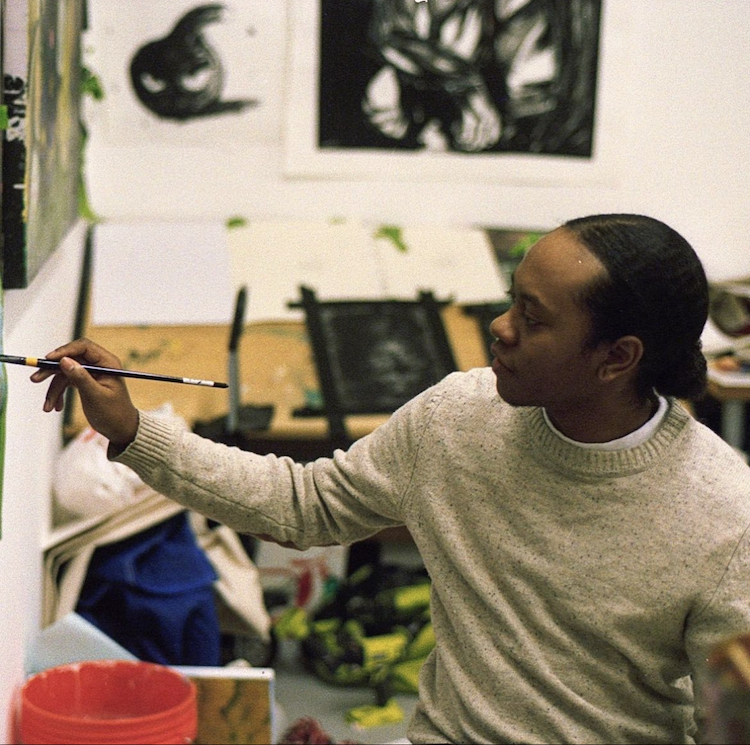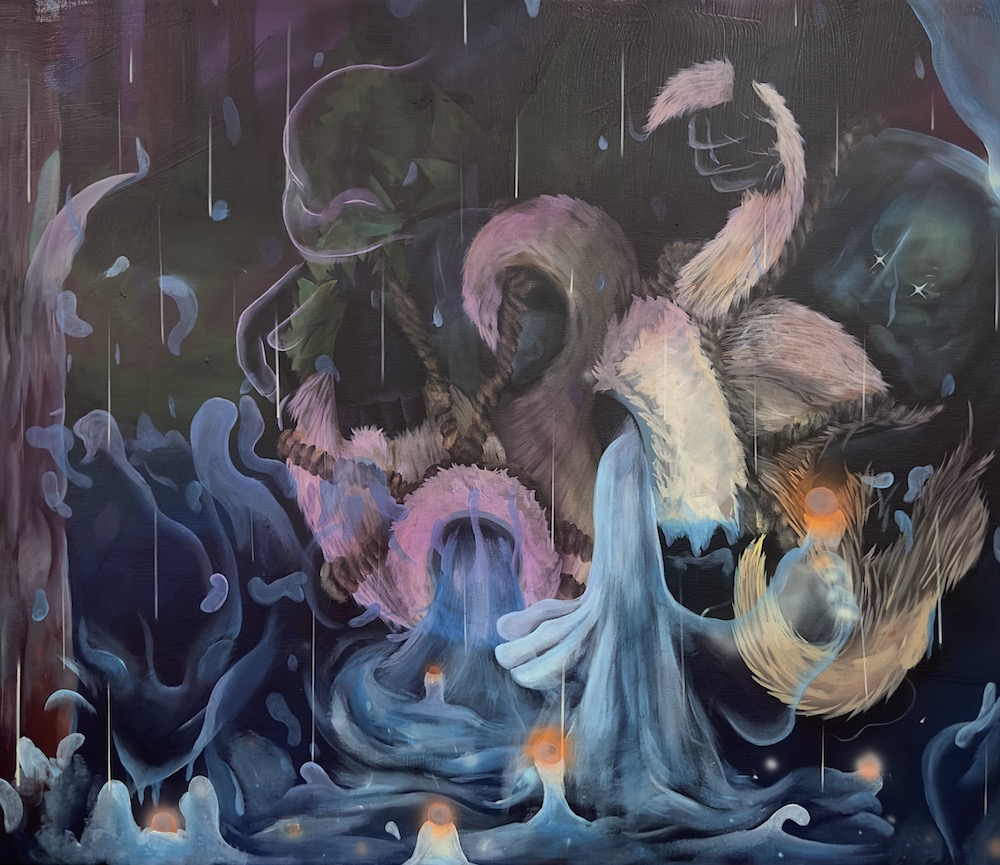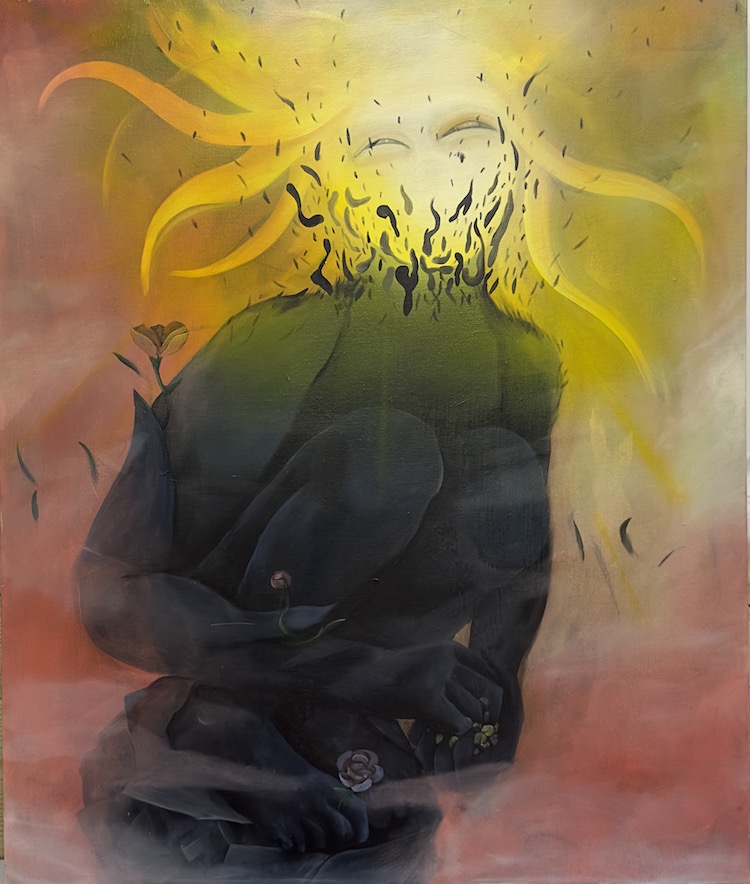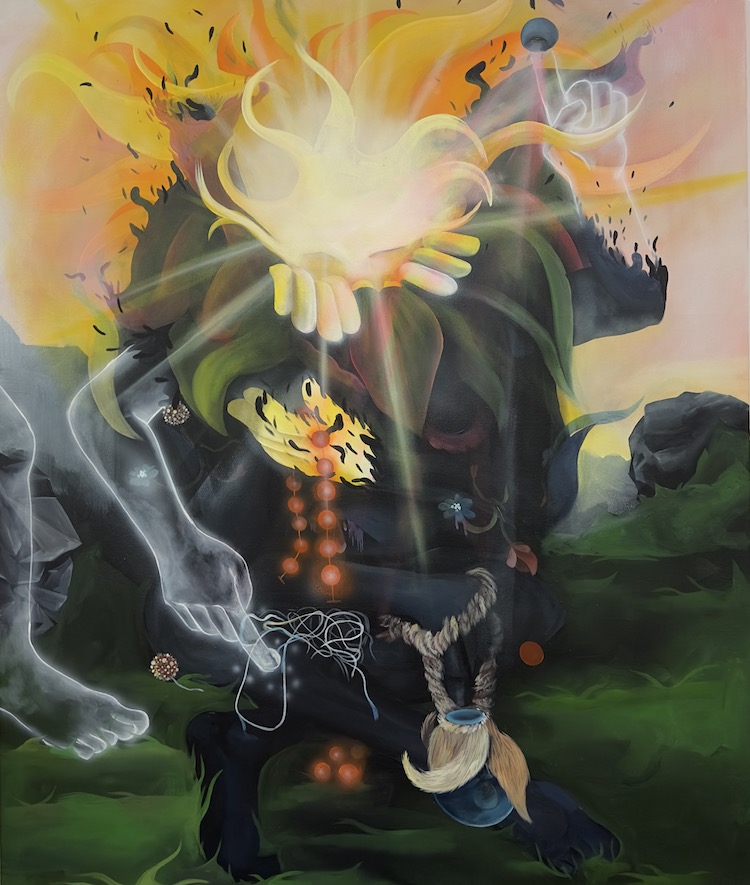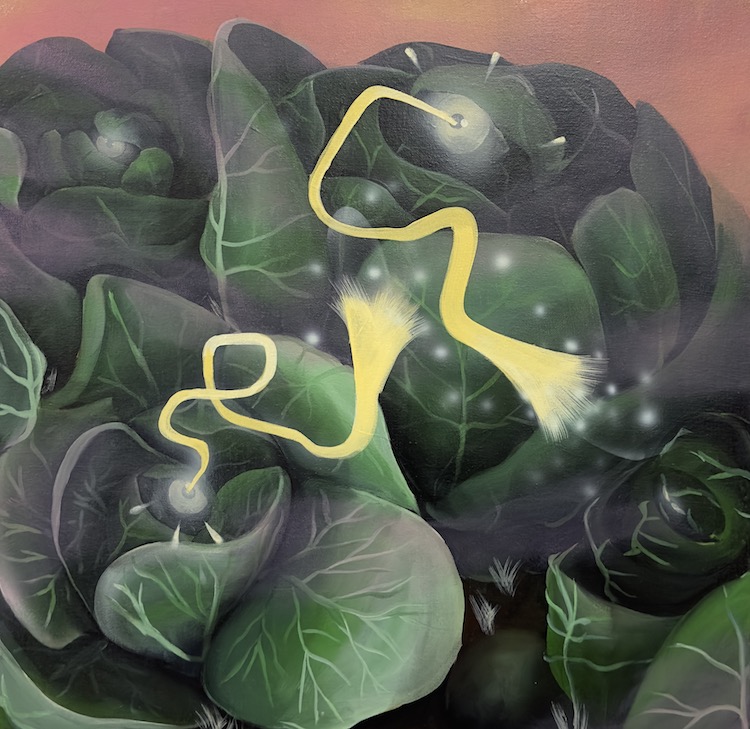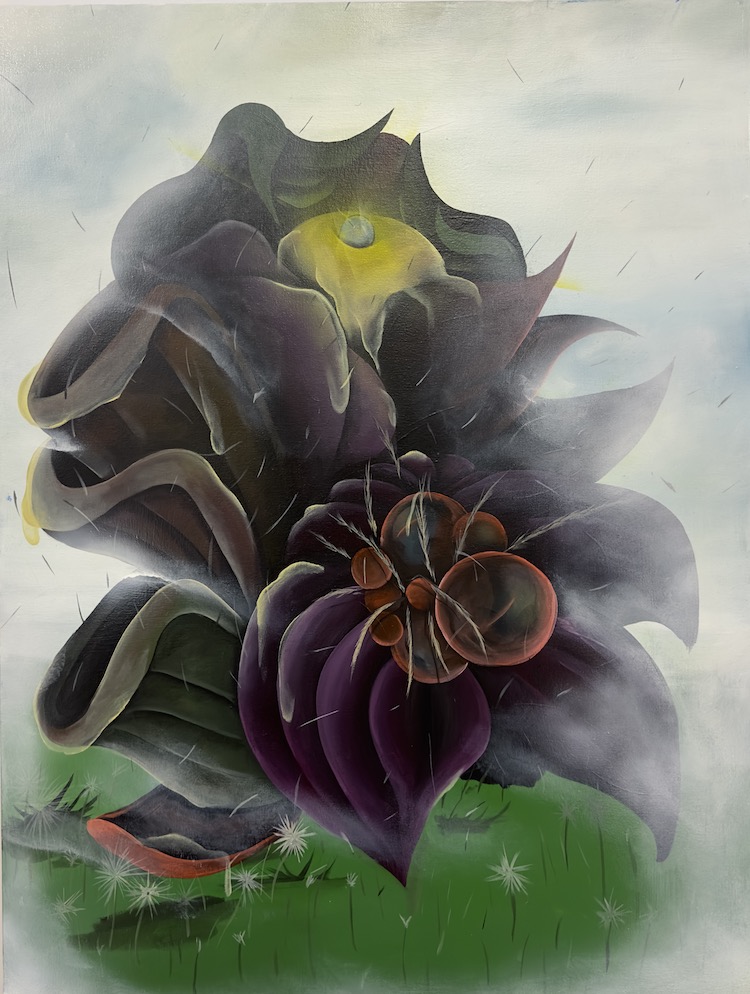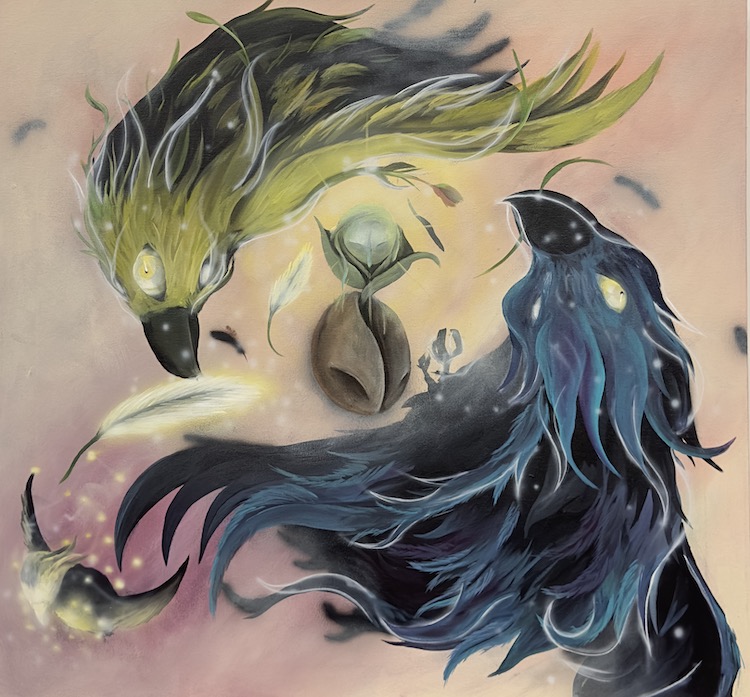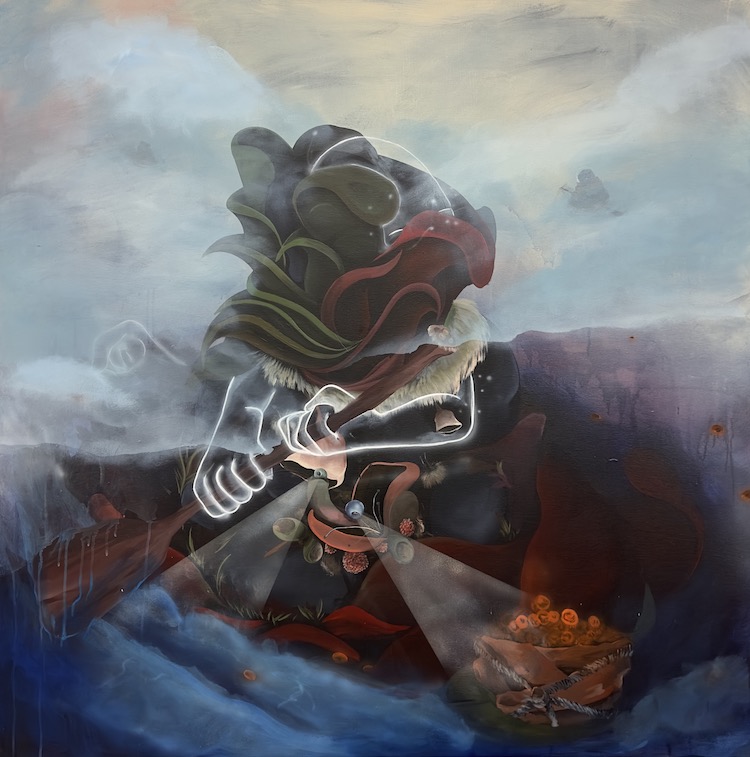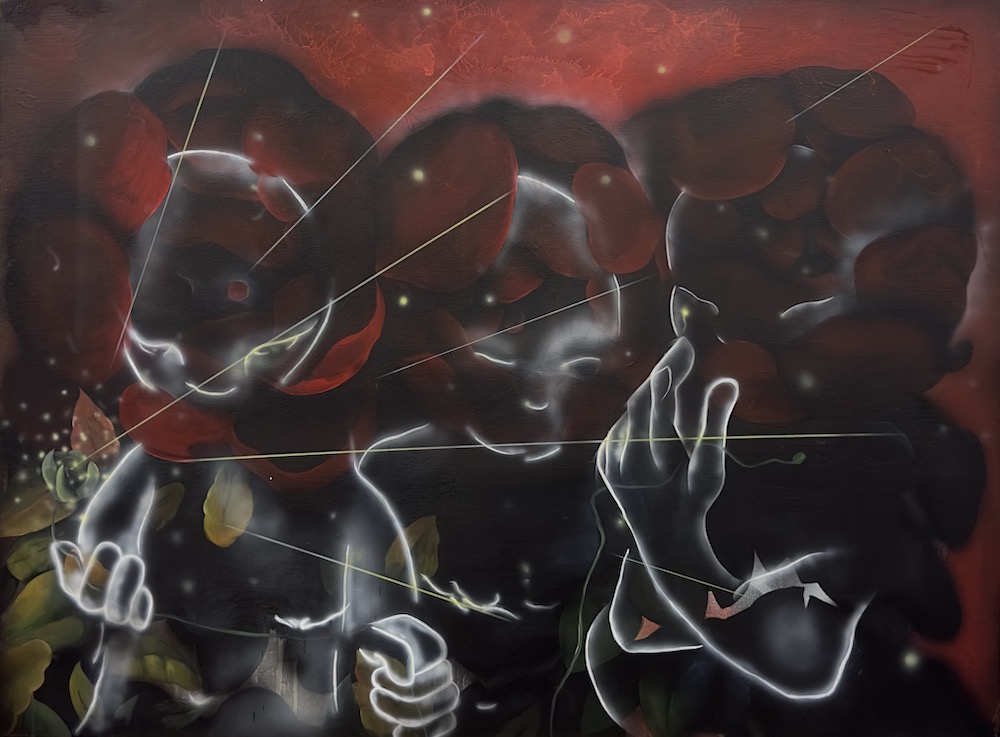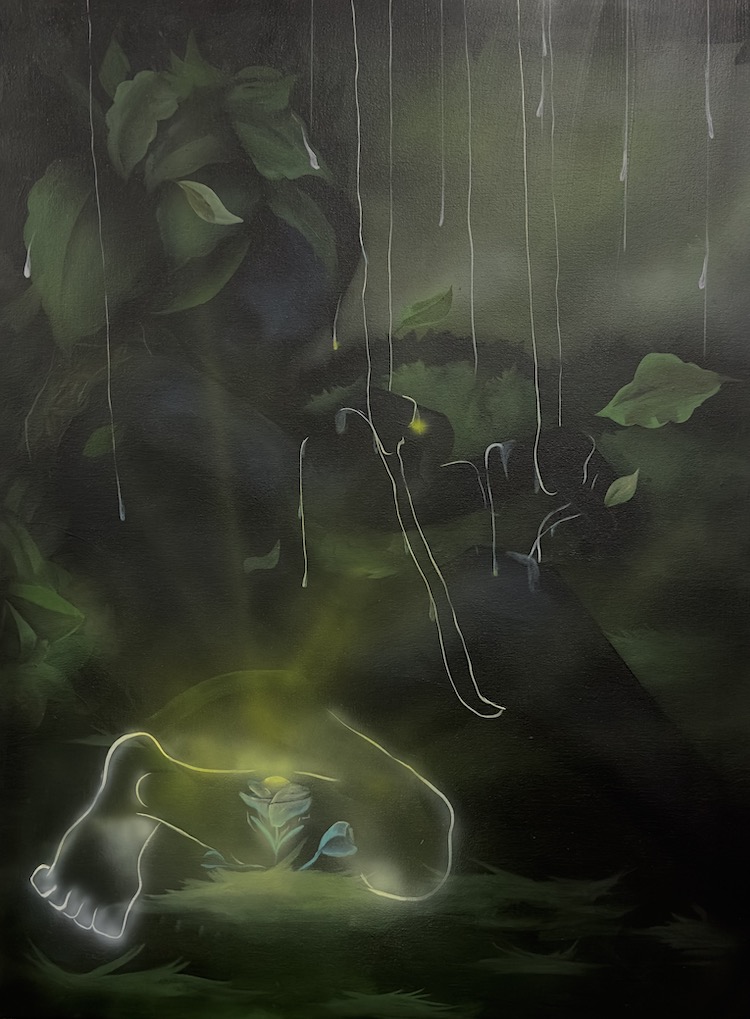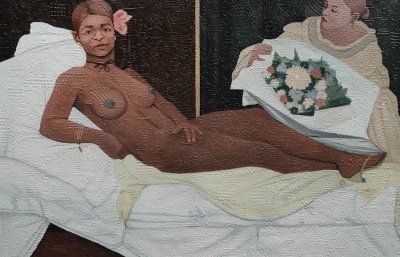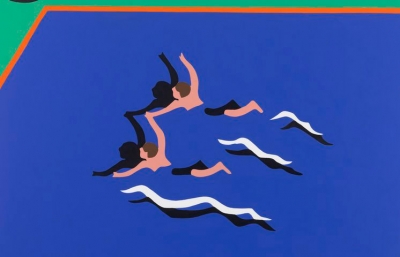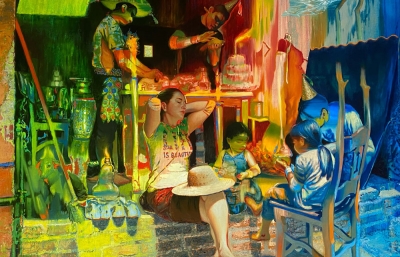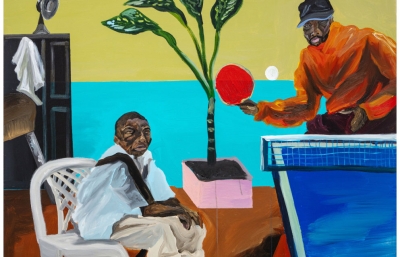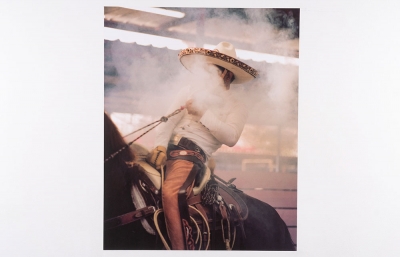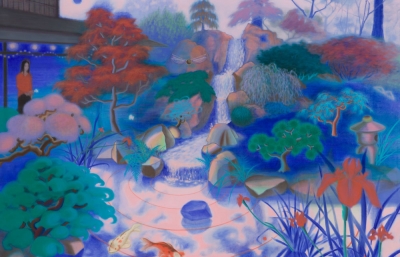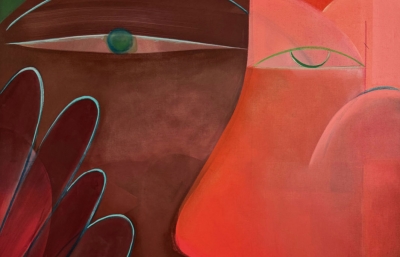Moosey Islington is delighted to announce a solo exhibition by Armani Howard. The exhibition will launch Saturday 28th October, 12—5pm. Armani (b. 1993. Chicago, USA.) is a multi-disciplinary, African-American- Thai artist. He graduated from The School of The Art Institute of Chicago (2012).
Armani works primarily in painting and drawing, he explores the themes of preservation of identity, escapism, pop culture, self-discovery, mental health, and loss of innocence. The direction of reimagining his existence and experiences as a black body into a visually sizeable body of work has become a form of contemporary folklore. Dream-like and at times bewildering, his work is expressive of narratives unbounded in time. He hopes this will help navigate future bodies to find their internal dialogue of identity and heritage while sustaining a self-supporting development while navigating through life.
His work layered with compositions of abstract figuration, loose gestural marks, and an evocative usage of colour, upholds the antecedents of the African-American dialogue before him. At the same time, allows the space to question American traditions.
"The tangible, the flesh, exists and then perishes," Howard says. "But the idea of its existence, the knowledge it left behind persists, perpetually seeding, sprouting on earth."
In this exhibition, The Boy, The Seed, and The Sun, Howard portrays a correlation between one's growth and that of a garden. Rooting his idealisms in esoteric notions, the viewer plunges into references to oracles and folkloric tales to understand how one's destiny is foretold. A juxtaposition appears the closer you look into the use of colour and the fogged veil detailed in the work. It may seem like abstracted figures at a distance, but every step closer opens your curiosity to the possibility of what one can bloom into, even with our environments, narratives, and memories that shape us.
Howard's work cross-examines the roles of memory, nostalgia, and folkloric narratives in creating and preserving identity. He explains that if we can look at our lives and experience them as a garden that receives tenderness and care, we can benefit from how our lives blossom. The feelings of things. The feeling of love, confusion, and searching for something you lack destination of. That presence is inconspicuous yet palpable. Howard prods the viewer's curiosity to think of the concept of nature's design, respecting it, and intervening in the outcome through caring for one's garden. He leaves you with a final thought to absorb for your own inner dialogue: "Life and death is an obsession with the material - if you come to terms with what someone stood for, their morals and beliefs, they have more gravity and weight than the physical form. The idea of someone can be forever."



